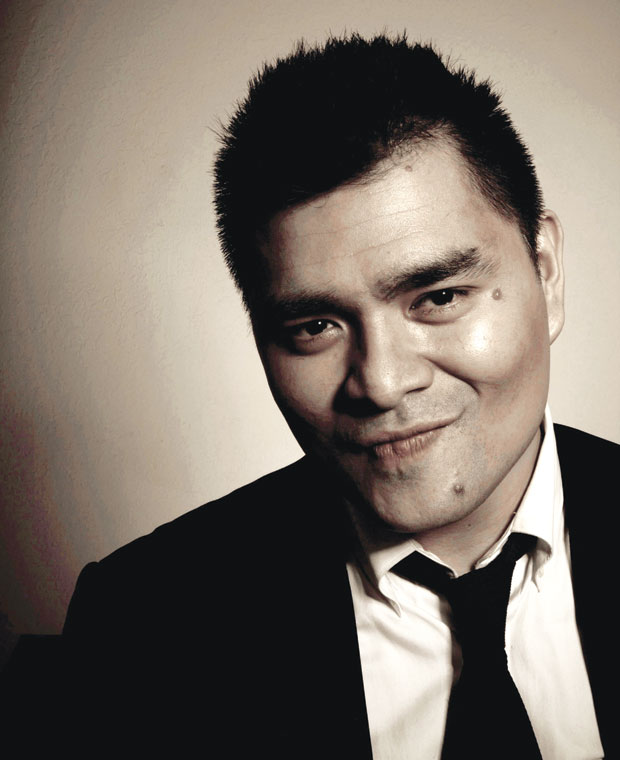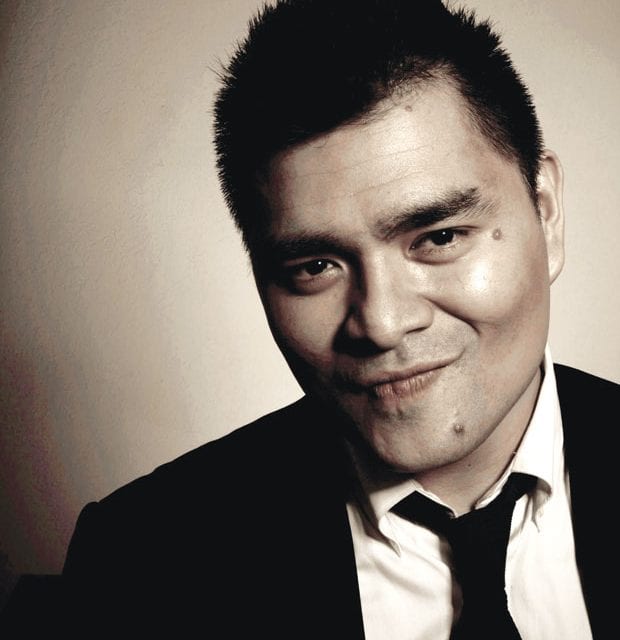Pulitzer Prize-winning journalist talks about what it’s like to be gay and undocumented before he kicks off UTA’s speakers series next week

COMING OUT TWICE | Jose Antonio Vargas came out as gay in high school, which he said was easier than coming out two years ago as an undocumented citizen in an essay in The New York Times Magazine.
Jose Antonio Vargas has been at the forefront of the immigration debate since he came out as an undocumented citizen in an essay for The New York Times Magazine two years ago.
Since then, he’s penned a cover story for Time magazine about the challenges he and other undocumented immigrants face. Vargas came to the U.S. from the Philippines when he was 12 to live with his grandparents.
He’ll be kicking off the Maverick Speakers Series at the University of Texas at Arlington Sept. 24, where he’ll discuss his work with his organization, Define American, and the ongoing dialogue about immigration reform.
Vargas, 32, said after his participation in the series was announced, someone tweeted that he was a controversial choice. But he said he thinks that’s great because he’s “all about preaching beyond the choir.”
The veteran journalist was part of The Washington Post team that won a Pulitzer Prize for their coverage of the Virginia Tech shootings. His articles on the AIDS epidemic in Washington, D.C., inspired the documentary, The Other City, which he co-produced and wrote.
That was his introduction to filmmaking and led him to make his new film, Documented, which chronicles his journey in America and the struggles others immigrants face.
Dallas Voice: So what do you think the tweet about you being controversial meant? Jose Antonio Vargas: For a lot of people I’m a controversial choice just because I happen to be not only undocumented but also gay, you know. … I like to say that I am a walking uncomfortable conversation and I’ve learned to just kind of embrace that.
In Texas, there are a lot of politicians like Ted Cruz that are against immigration reform. What is your advice to their constituents on how to approach that problem and tackle that issue with politicians? Poll after poll has shown that the majority of the American public thinks that it’s time that we have immigration reform and that there should be a path to citizenship for people like me. In some ways, I think our politicians and elected officials are actually behind the American public and I would argue, in that vein, both senators from Texas, Ted Cruz and [John] Cornyn, are behind the American public on this issue.
How do think your life has changed since you came out as undocumented in The New York Times Magazine essay? It’s interesting because I feel like my life and career just started when that happened. I had been a journalist at that point for more than a decade. I’d like to think that I was pretty successful, but I feel like my life professionally and personally actually started two years ago when all of that happened. You know, kind of owning myself and not running away from not being caught but running toward myself and realizing what I had done and kind of the toll that it’s taken on me and that it’s taken on my friends and it’s taken on my family. So kind of an awakening of sorts.
You came out in your history class after watching a documentary on Harvey Milk, just months after Matthew Shepard had been murdered in 1999. What made you come out and what was the response? Thank you for asking that question because I think it’s so important as much as possible that we connect these issues. I found out I was undocumented when I was 16 and around that time I think I started realizing, hey, I think I’m gay. I was dating this woman, this young woman Patricia, on and off since middle school because I thought that’s what I was supposed to do.
All the while, when I found out that I was undocumented, my grandfather told me that the plan was to marry a woman, an American citizen, and get a green card. That was the plan. So there I was knowing that I’m undocumented and knowing that I’m also gay, realizing that. And I guess I just knew that I couldn’t be in two closets at once. I had to get out of one of them. So Matthew Shepard’s killing, I think for a lot of us, was a seminal moment. … Thankfully, I grew up in Mountain View, about an hour outside of San Francisco, and I was the only openly gay kid in my school because they started the GSA a year after I graduated. I don’t remember being ostracized or being discriminated against. If anything, I think my administrators and my teachers were just very supportive.
You’ve described coming out as gay as being easier than coming out as undocumented. Why was that? That was given the circumstances given where I was. I’m sure if I had grown up somewhere in the South or somewhere that wasn’t quite as gay-friendly, I’m sure I would’ve felt different. I’m sure I probably would’ve been in the closet about both of those things. Maybe I would’ve married a woman to just get a green card. Maybe I would’ve just done that and had kids and lived that kind of a double life. You know, that could’ve happened. So I was really fortunate in many ways by being accepted by my school. At home it was different because I grew up in a Catholic household. My grandmother didn’t really understand it. My grandfather was just upset because he had a plan. The plan was to marry a woman and get a green card. And he just didn’t understand I was going to throw it all away because I wanted to be gay. He was like, “You want to be gay. You want to be gay.” It’s not something I wanted. It’s just something that I am. He didn’t understand that, so that was hard.
What was your response to the DOMA ruling that allowed binational gay couples to sponsor their partners for citizenship? Historic, historic, historic ruling. … It’s funny because I’ve never really had a serious relationship. I think I’ve been so busy just running away from things, even running away from men, that it was just like I never wanted to get that close to somebody because then they would ask questions that I couldn’t answer and I didn’t want to answer. The irony of this is I was a journalist asking questions and yet I never wanted to be asked questions. My job was to tell the truth and write about the truth and yet I was lying about who I was. So I haven’t allowed myself to get that close to somebody. I’ve been joking since the DOMA ruling that, all right, now there’s a practical way, there’s a practical reason to actually find a boyfriend and get married. I’m kidding.
Is marrying someone one day a path you’ve considered or not right now because you’re not in a serious relationship? I’m not in a serious relationship so hopefully maybe I will be soon. I don’t know.
People often ask you why you haven’t been deported. How do you respond to that? Oh, ask the government. I don’t know. Ask them. All I know is President Obama has deported more immigrants than any other modern president — 1.4 million and counting — and I’m not one of them. I was ready to get deported from day one.
How do you plan to become a citizen? I plan to be a citizen when we pass immigration reform. That’s the plan. I just am hoping that we don’t have to wait too long.
You have a new documentary, Documented, that chronicles your journey. Why did decide to tell your story in film? My original idea was to do a film on the DREAM Act. I was going to do a film as an undocumented journalist interviewing undocumented students and DREAMers. So I filmed for about a year thinking that was what I was going to do.
And then one of my filmmaker friends kind of challenged me and said, “How can you do a film on immigration and not include your mom?” I haven’t seen my mother since I was 12. So I don’t even really know how to talk about my mother. All I know is I’ve tried really hard to not to think about her because it’s too painful to think about. … I thought how do I do this film, how can I include my mom when I can’t even go to the Philippines to film my mom?
But thankfully I decided that I should send a film crew and I did. When the footage got back, when the small crew returned and met back, after seeing her footage in her interviews, it became very clear that the story had to focus on her as well, you know, that it couldn’t just document my life and whatever it is I’m going through. It had to document her life and what she’s going through. I didn’t really realize how broken I was until I saw how broken she was, to tell you the truth.
Define American: My Life as an Undocumented Immigrant with Jose Antonio Vargas, Sept. 24 at 7:30 p.m. Texas Hall at UT Arlington, 701 S. Nedderman Drive, Arlington. General admission is free. Preferred seating is $25. For tickets, visit UTAtickets.com.
This article appeared in the Dallas Voice print edition September 20, 2013.

